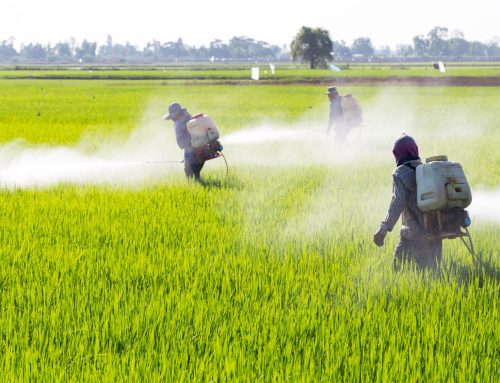Today’s opinion from the European Chemicals Agency (ECHA) – that glyphosate does not present an unacceptable risk to human health – is not only a huge disappointment, but also a complete abandonment of the precautionary principle. It puts the health and wellbeing of millions of EU citizens at risk.
It is very clear from the report prepared by the global experts on the subject – the International Agency for Research on Cancer (IARC) – in 2015, that the active substance, glyphosate, is linked to cancer. IARC’s categorisation of glyphosate as a probable human carcinogen means that it fails the current EU approval criteria for pesticides and it should be banned from use because it presents an unacceptable risk to human health.
The ECHA opinion raises serious questions about its impartiality and its relationship with the pesticide manufacturers. An open letter to ECHA published on 7th March 2017, and co-signed by 20 European organisations, highlighted issues surrounding the transparency and impartiality of the ECHA process. The letter points out that two members of the ECHA panel appear to have conflicts of interest as they work for bodies that derive some of their income from work undertaken for the chemical industry. There are also serious concerns about the ability of the Chair of the panel to deliver an unbiased review given that his experience comes largely from undertaking risk assessment work for the chemical industry.
In reaching its conclusion, ECHA drew on unpublished scientific evidence and data generated by the chemical industry. Independent organisations and experts have not been able to review these studies and this raises serious concerns about the transparency of the process. At the very least, there should be the opportunity for open and independent scrutiny of all the studies that are being considered and evaluated by ECHA.
It is clear from this decision that the concerns outlined in the letter are well founded.
The ECHA’s mission statement is based on the premise that decisions taken should be “for the benefit of human health and the environment as well as for innovation and competitiveness”. Clearly this decision does not follow that principle.
For more information on the harm that glyphosate can and does cause to human health and the environment please see the Pesticide Action Network International monograph on the harmful effects of glyphosate on human health and the environment – https://issuu.com/pan-uk/docs/glyphosate_monograph_complete?e=28041656/43997864
Links:
Joint letter from 20 European NGOs concerning conflicts of interest within ECHA – http://www.greenpeace.org/eu-unit/Global/eu-unit/reports-briefings/2017/20170306_Open_Letter_ECHA_CoI_Concerns.pdf





